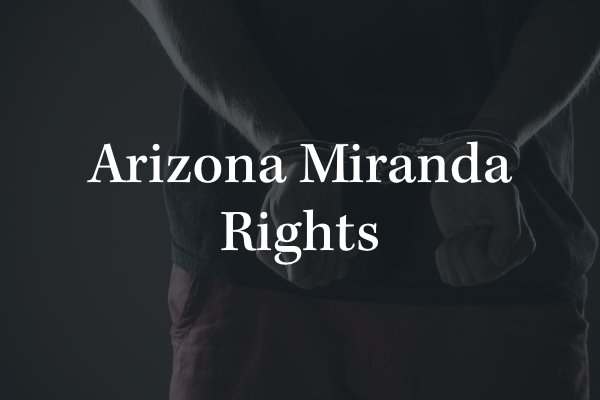Miranda Rights are an oftentimes misunderstood set of personal protections that are to be read aloud in certain circumstances. As a police officer or other agent may forget or neglect to read them to an individual they are dealing with, the victim may later wonder if their case could be dismissed due to the officer’s shortcomings. Reach out to a West Chester Miranda Rights attorney from Ciccarelli today to get a free consultation on your case.
How Did the Miranda Rights Come About?
The term “Miranda Rights” arose after a United States Supreme Court case in 1966. Ernesto Miranda, the plaintiff in Miranda v. Arizona, won against the state of Arizona and the Supreme Court decided that the Constitution’s Fifth Amendment applied to someone detained or in the custody of a police officer. This effectively prohibits the obligation to self-incriminate:
One’s Miranda Rights are to be read explicitly under certain circumstances:
“You have the right to remain silent. Anything you say can and will be used against you in a court of law. You have the right to an attorney. If you cannot afford an attorney, one will be provided for you.”
The Fifth Amendment plainly lays out that no one should be made to be a witness against themself in a criminal court case. This is why Miranda Rights begin with the information that they have a “right to remain silent.” Someone in custody is not required to give statements to agents of the law while being questioned.
When an Officer Must Read Your Miranda Rights
Yet, despite the obligation to read individuals their Miranda Rights, they must only do so under certain special conditions. Those are when someone is in the custody of an agent of the law and when they are under interrogation. Custody is defined as the deprivation of someone’s “freedom of action in any significant way,” whereas interrogation is defined as an “express questioning or its functional equivalent.”
This means that, in some cases, Miranda Rights do not technically have to be read. Miranda does not apply to an individual who does not meet both criteria of being in custody and interrogated. Someone not read their Miranda Rights while not meeting both criteria would therefore have no grounds for having their case dismissed.
In a further extension, Miranda Rights are not constitutional rights themselves – they are simply safeguards against the Fifth Amendment to the United States Constitution. While they are still important, not being read Miranda Rights when someone does meet both criteria of being in custody and under interrogation does not mean that their case will be dismissed. Oftentimes, this means that anything that could incriminate them while they met these criteria and were not read their rights cannot be used as evidence against them in a court of law. This is the most robust protection of rights to come out of the Miranda v. Arizona trial.
What to Do if Your Miranda Rights Were Not Read
Determining if someone is “in custody” or “under interrogation” and other confusing areas of the law requires the help of a dedicated and passionate legal team. Reach out to a Phoenix criminal defense lawyer from Ciccarelli today to learn more about how we can help you with your case. Call (610) 692-8700 or send us a message online through the contact form on our website for a free consultation.

